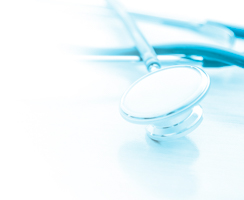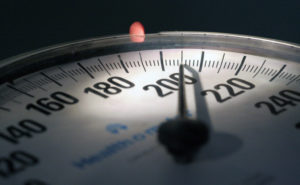Lymphedema is one of the most common side effects of breast cancer treatments, but many women are unaware of what causes it or how it can be treated.
After undergoing surgery or other breast cancer treatments, you may develop lymphedema. Many breast cancer patients are not made completely aware that lymphedema is a possible complication of their procedure, and it can take years before symptoms arise. Although lymphedema is an irreversible condition, it can be managed with the proper treatment if you know how to recognize it.
What is Lymphedema?
Lymphedema is a form of abnormal swelling that can occur in extremities such as your arms or in the chest or breast area treated during breast cancer surgery. This swelling is caused by a buildup of fluid, called lymph, which can happen when a lymph node or vessel is cut, damaged, or removed as part of your treatment. This type of damage can prevent the lymphatic system from properly filtering and draining bacteria and waste products from your body’s organs and tissues. While temporary types of this buildup and swelling can occur immediately following your surgery, the most common form of lymphedema (called secondary lymphedema) can develop months or years after surgery.
The possibility of developing lymphedema from cancer treatments is uncertain, as studies show that percentages range from 10% to 90%. Surgeons who perform mastectomies try to avoid damaging the lymph nodes in that area, but often the threat of cancer spreading requires the removal of nearby lymph nodes.
Why is the Lymphatic System Important?
The lymphatic system assists both the circulatory system and the immune system. With about 100 lymph nodes dispersed throughout your body, the lymphatic system helps your immune system fight foreign bodies like viruses. Women diagnosed with breast cancer are encouraged to begin or maintain a very healthy lifestyle to help support their immune systems in being able to fight the cancer and other illnesses that may threaten their recovery.
If you develop lymphedema after a mastectomy, you will have to continue the same health and wellness practices to keep from getting sick after losing some of your lymph nodes. The more healthfully you live, the less your lymphatic system has to work to keep you healthy, meaning your lymphedema will be easier to control.
What are the Signs of Lymphedema?
The most obvious sign that lymphedema has developed after your surgery is pronounced swelling, heaviness, tightness, pain, or discomfort in your arms, hands, chest, underarm, or breast. If you start to have trouble fitting into jackets or shirts, or getting watches, rings, or bracelets on and off, these could also be signs of damage to the lymphatic system. The swelling caused by lymphedema is different from other kinds of swelling because it will not go away and will most likely only continue to worsen. If you ever have sudden severe swelling, it could be a sign of another kind of infection or that cancer has spread.
How Do You Treat Lymphedema After Breast Cancer Surgery?
While there is no cure for lymphedema once it has developed, there are ways to manage the effects in your daily life. To reduce the swelling, a combination of methods usually recommended by a physical or occupational therapist that specializes in treating lymphedema after breast cancer surgery is used. Your individualized treatment plan may include:
- Specialized exercise programs
- Lymphatic drainage therapy
- Complete decongestive therapy (CDT)
- Compression sleeves or stockings
- Mechanical pumping devices
It is also recommended that you maintain a healthy diet, wear looser clothing, exercise regularly, practice good skin care, and avoid heavy lifting. These recommendations can reduce the impact lymphedema has on your qualify life, allowing you to live happier and healthier after beating breast cancer.
If you need help treating lymphedema after breast cancer surgery, contact Horton’s Orthotics & Prosthetics or call 501-683-8889 to set up a free consultation for our compression garments.



Leave a Reply